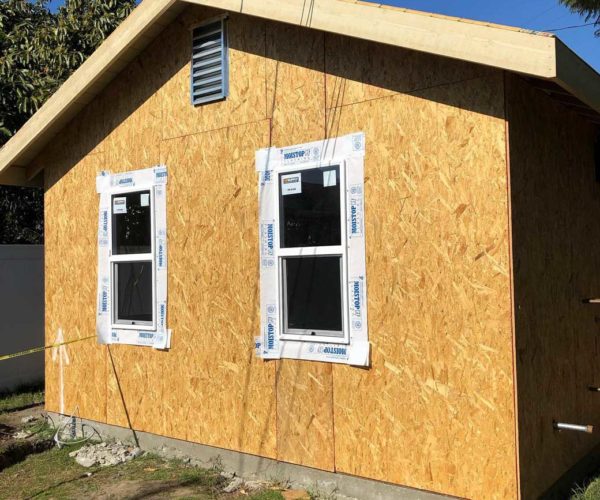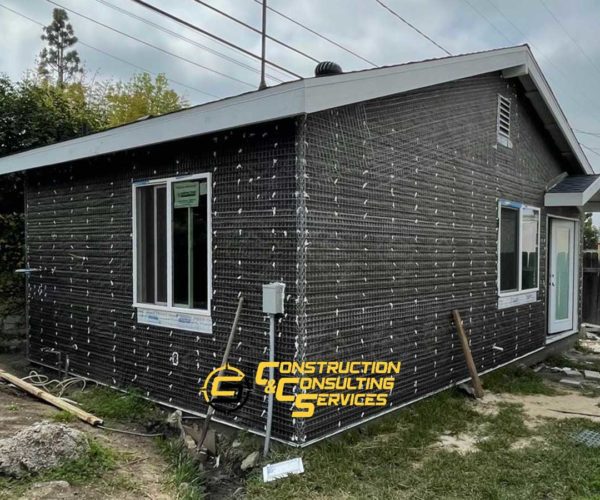Accessory Dwelling Units (ADUs) have gained traction in providing additional living spaces and addressing shortage of affordable housing and in Los Angeles.
This is largely because the state government is leaving no stone unturned to make the construction of secondary dwellings easier and more affordable. These units can either be detached structures, attached to the primary residence, or converted spaces within an existing structure.
All types of ADUs necessitate compliance with building codes and obtaining the requisite permits from the Department of Building and Safety. Adherence to building codes ensures integrity, safety, and alignment with zoning regulations.
These regulations continuously evolve to accommodate diverse housing needs. Therefore, before you set your ADU plans to motion, it is important to understand the rules and regulations.
This guide will help you learn what’s new and improved in the housing and ADU in California – from the most important changes made the past years, to the most relevant bills enacted in 2023.
ADU Rules in California
ADUs can be created in various forms and shapes, with each having its own set of rules and regulations. It’s important to thoroughly research and comply with the rules and regulations specific to the location.
Number of Units Permitted in one Property
For Single-Family Lots: One ADU, no matter attached or detached, and one JADU. Previously, the ADUs laws permitted only one accessory unit per single-family lot. However, under AB 68, municipalities are required to approve:
For Multi-Family Lots: Two detached ADUs and one attached ADU. Properties with eight or more units can add additional attached units.

ADU Rules for Detached ADUs
Lot Size: There is no minimum lot size requirement for standalone ADUs.
Utility Connections: Accessory units that are away from the principal home are required to have separate electrical, plumbing, and sewage connections.
Separate Entrance: ADUs that are away from the principal home are required to have their independent entrance.
Height Limit: The height of a single-story standalone unit can be up to 16 feet. The maximum height limit for a second story ADU away from the main house is 25 feet.
Setbacks: A detached ADU is required to have minimum side and rear setbacks of four feet. Units that are created through the conversion of garage, shed or any other detached structure are exempt from the requirement.
Bedrooms: State ADU laws proscribe the limitation on the number of bedrooms of an ADU.
Parking: One parking space per ADU or bedroom (whichever is less) unless the following are met;
- Secondary units that are located within one-half mile walking distance of a public transit.
- ADUs that are located within historic, architectural, aesthetic or cultural significance.
- ADUs that are part of the principal home or another accessory structure;
Authorities cannot require guest parking in any circumstances.
ADU Rules for Attached ADUs
Lot Size: There are no longer any limitations for minimum lot size for dwellings attached to the primary house.
Separate Entrance: ADUs that are attached to the main house are required to have their separate entrance.
Parking: Local parking requirements have been relaxed, especially for the ADUs that are located within a half-mile of public transportation or in historic districts.
Height: The height of an ADU attached to the main house should be 16 ft with a 4-foot side and rear yard setbacks.
Utility Connections: Attached ADUs are required to have separate electrical, plumbing, and sewage connections.
Bedrooms: Los Angeles housing laws do not allow for the limitation on the number of bedrooms of an accessory dwelling unit.
Bathrooms: Attached dwelling units are required to have their own separate bathroom.
Rules for JADUs in California
Size: A Junior Accessory Dwelling Unit (JADU) is contained within an existing single-family residence. The maximum size of the unit is 500 sqft.
Kitchen : JADUs may have an efficiency kitchen that contains;
- A cooking facility with compact and efficient kitchen appliances.
- A food preparation facility.
- Counter(s) reasonable with respect to the JADU size.
- Food storage cabinets that are of reasonable size in relation to the JADU.
Bathroom: A JADU may include a sanitation facility or may share it with the main house.
Utility Connections: JADUs can share certain utility connections, including water, sewer, and sometimes electricity, with the primary house.
Parking Requirements: Some areas in California may have parking requirements associated with the construction of JADUs. You may need to provide additional parking space for the unit, although recent state laws have relaxed these requirements in certain cases.
Expansion: An expansion of up to 150 square feet is permittable beyond the footprint of a JADU’s existing structure. The permission, however, is strictly prohibited for the purposes of accommodating the ingress/egress of the structure, such as walkway and driveway etc.

Other Rules for ADUs in California
Owner Occupancy: Homeowners are no longer required to live either in the principal home or ADU itself. The move has paved way for seasoned real estate investors to invest in these secondary dwellings.
Permit Processing Time: LADBS is required to decide the fate of an ADU permit application within 60 days following its submission.
Rental Terms: Most jurisdictions in California require longer-term leases for ADUs. Some other areas might allow the units to be rented out for short term rentals.
Final Words
Easing ADU regulations in the state has set the stage for homeowners to take advantage of this opportunity to increase the value of their home and generate a steady stream of passive income. Yet, navigating these rules is essential for property owners to avoid potential legal issues, obtain necessary permits, and construct ADUs that conform to the city’s regulations while contributing positively to housing needs. Working closely with an experienced contractor can streamline the process and ensure a successful ADU project that meets all the requirements.
ADU Experts You Can Trust
For years, we at CCS Inc have been bringing the ADU dreams of Los Angeles homeowners to life.
From concept through to completion, we can work with you at every step of the way to transform your vision into a reality.
Reach out to us today to schedule a consultation with our experts.



